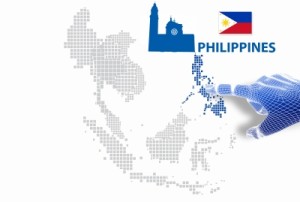 The Philippines is targeting to join the live operation of the Association of Southeast Asian Nations (ASEAN) Single Window (ASW) before the middle of 2016, according to the United States-ASEAN Connectivity through Trade and Investment (US-ACTI).
The Philippines is targeting to join the live operation of the Association of Southeast Asian Nations (ASEAN) Single Window (ASW) before the middle of 2016, according to the United States-ASEAN Connectivity through Trade and Investment (US-ACTI).
US-ACTI ASW lead Dennis Pantastico, at the Export Development Council Export Policy Reform Updates on December 7, reported that the Philippines, as well as Brunei, has expressed its intention to use the platform by the second quarter of next year.
The country will not be able to join five other ASEAN member states—Indonesia, Malaysia, Singapore, Thailand, and Vietnam—that will comprise the first batch to participate in the live operation of the ASW scheduled by the end of the year.
Pantastico noted that Vietnam, which had confirmed its intention to join the project in the middle of last year, only took about six months to prepare and configure its National Single Window (NSW).
“If Vietnam could do it in less than six months, I hope the Philippines… can also do it,” Pantastico said.
Interconnection with the ASW requires an operating NSW. However, the Philippines’ NSW Phase 2 project has yet to proceed because of a temporary restraining order (TRO) issued against the cancellation of project bidding by the Bureau of Customs (BOC) and the Department of Budget Management-Procurement Service. BOC is contesting the TRO.
READ: Court halts cancellation of P650M BOC computerization project
Another concern is that not all of the 42 trade regulatory government agencies of the Philippines are connected to the NSW.
The rest of the ASEAN countries—Cambodia, Laos, and Myanmar—plan to join the ASW in 2017.
The ASW, an online trading facility that connects and integrates the NSWs of ASEAN member countries, is the region’s “premiere program to speed up the process of trading goods across borders,” according to Pantastico. Its objective is to speed up cargo clearance and ensure that exchange of data between parties is secure and reliable. ASW’s main goal is to make the processing of trade data simpler, faster, and more transparent.
Pantastico said that in a survey done in 2012 on the potential impact of the ASW, the results showed that with the paperless process, there is an expected 10% cost saving in the exchange of regulatory documents and another 8% cost saving in the exchange of commercial and transport documents.
With the ASW, the US-ACTI head said the government will also be able to provide “a more predictable environment” for traders, improved compliance and enforcement, and more effective use of government resources.
For exporters, importers, and traders, the ASW will help achieve greater transparency of regulations and processes, more rapid border clearance for both imports and exports, easier processing of traded goods with the use of the trade repository, and lower cost of doing business/transaction fees for goods clearance.
Pantastico said they are now conducting parallel testing and evaluation of the ASW.
Moving forward, he said the next step is for member states to ratify the legal framework for ASW implementation. He noted there was agreement in Asean for the ASW to push through even if the legal framework, which was signed just this year, has not been ratified by all member countries.
Part of the plan is to include the submission of additional cross-border documents—such as export declarations, electronic sanitary and phytosanitary certificates, electronic manifests, and booking and loading confirmations—into the ASW. The plan is to also integrate ASW information into the risk management systems of member states.
The US-ACTI, a five-year technical assistance program that is part of the United States’ engagement with ASEAN, supports accelerated implementation of select components of the ASEAN Economic Community, including the ASW. – Roumina Pablo
Image courtesy of pixtawan at FreeDigitalPhotos.net





